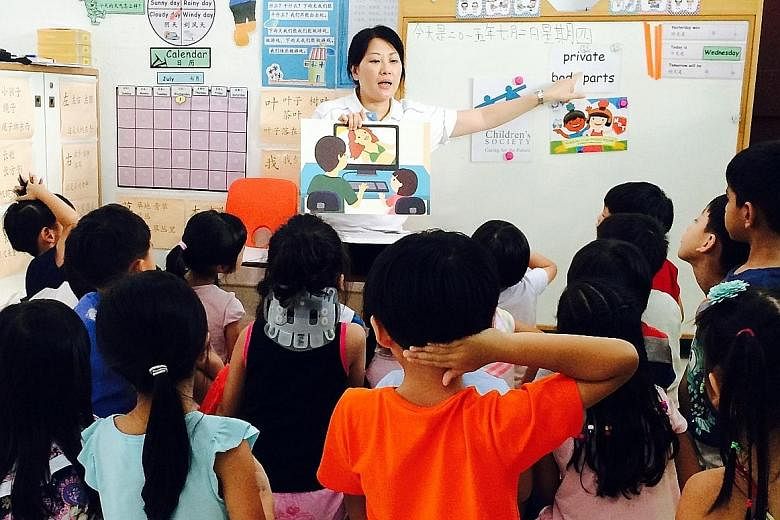Sexual abuse of children has been in the spotlight this year in Singapore.
As hard as it is to believe, these cases may have not only occurred but also been buried for years without parents' knowledge, causing concern about the safety of children even within their own homes.
Sexuality education at the primary and secondary school levels has grown in scope and become holistic following revisions to the curriculum by the Ministry of Education.
However, though body safety programmes such as KidzLive - I Can Protect Myself by the Singapore Children's Society exist, they are not mandatory for pre-schoolers.
This could be attributed to:
•The belief that pre-schoolers may not have the ability to understand and process the subject matter.
•Parents avoiding the topic out of fear of ruining the child's innocence.
•The subject being viewed as a taboo in certain families.
But pre-school children can be curious about themselves and their surroundings.
They often notice similarities and differences between bodies.
Their innocence can make them easy targets, resulting in long-term negative psychological impacts when victimised. Therefore, the knowledge of one's body and how to keep oneself safe is crucial even in the young.
Experts suggest that a child can be taught body safety as early as two years old, when they start identifying their body parts.
Theories like "good touch and bad touch" have always been suggested and used.
However, paedophiles can easily groom their victims into believing a touch is good when it is not the case.
Additionally, if the child were to feel "good" or sense any pleasure during the abuse, it would only confuse them and deter them from questioning the touch further.
Therefore, modifying the words "good touch" to "safe touch" and "bad touch" to "unsafe touch" would be more appropriate.
Additionally, helping the child understand the concept of "safe" and "unsafe" secrets would help them deal with anxiety when facing such situations and told to keep the incidents a secret.
An unsafe secret has been described as one that makes you feel uncomfortable and afraid. A safe secret is a secret that makes you feel happy to keep, for example a surprise birthday gift for your friend.
Lastly, I would suggest that parents, caregivers and pre-school teachers work together on this topic with children, to build an open-minded relationship with them, empower them to know their support system and help them set boundaries.
Sneha Sundar Rajan

